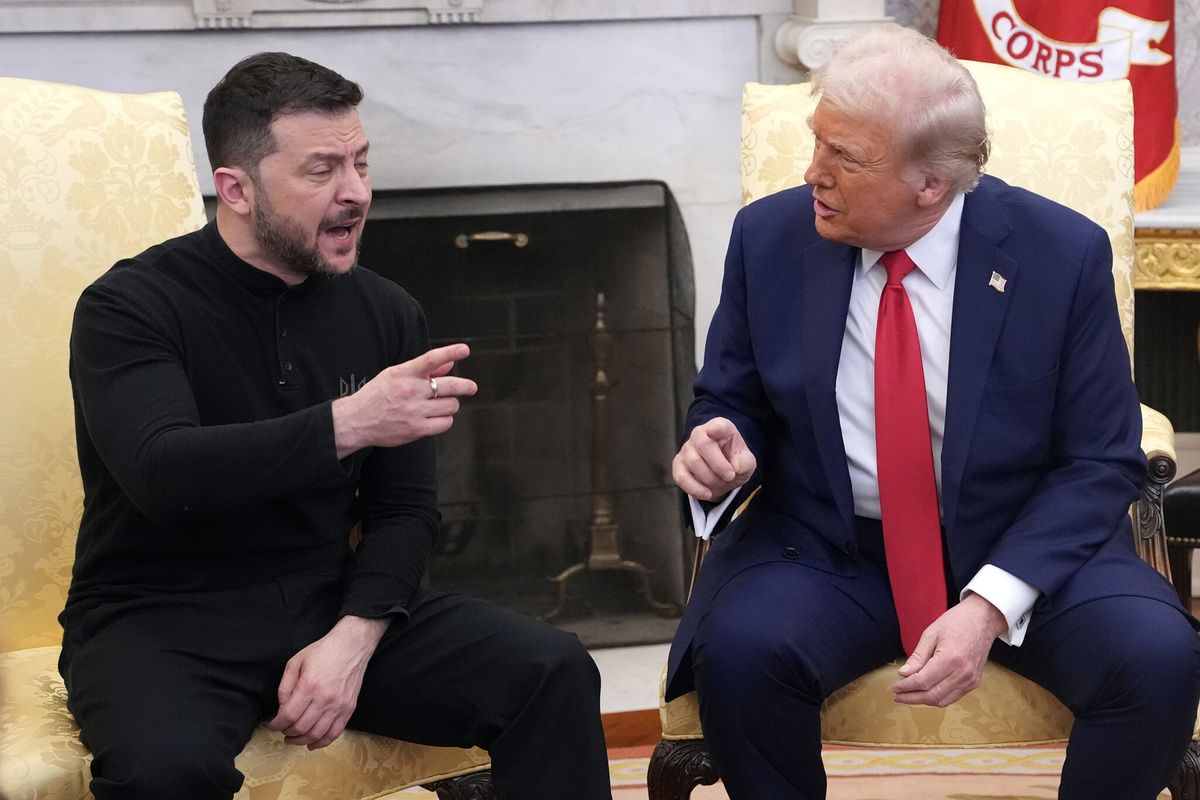A Donald Trump presidency could spell bad news for transatlantic relations, including the U.S.-German relationship, according to many experts. The Cipher Brief’s Kaitlin Lavinder traveled around Germany, asking people what they think of Trump. Dagmar Pepping, who covers national politics for Germany’s largest broadcasting service ARD, told The Cipher Brief she is “afraid” of how Germans would view the U.S., should Trump be elected president.
The Cipher Brief: How is Donald Trump portrayed by mainstream German news media, including your employer ARD?
Dagmar Pepping: In the early stages of the Republican nomination process, Trump was portrayed as the “glamorous” outside bet in the race: the entertaining billionaire from New York known for his casinos and TV shows. I don’t think he was taken too seriously as a contender for the White House.
When it became clear that Trump would become the Republican nominee, the coverage shifted more to asking and analyzing how a populist like him could take over the party of Lincoln, Reagan, and George H. W. Bush. Would his candidacy and its aftermath destroy the Republican Party as we know it?
The deeper we got into the presidential race of Trump against Hillary Clinton –and especially when the polls were very close – coverage shifted to asking what a potential President Trump would mean for Germany, the European Union (EU), and the rest of the world. The accusations of sexual misconduct were covered broadly and further defined Trump’s poor image in Germany.
TCB: Is there a majority public consensus in Germany on whether a Trump presidency would be a good or bad thing?
DP: The vast majority of Germans prefer Hillary Clinton as the next U.S. president. In a national poll in early October, 86 percent of Germans polled said they would vote for Clinton if they could. Only four percent of the Germans would support Donald Trump. Most Germans view Trump as too inexperienced for the job of U.S. president.
It should be noted; Germans usually favor Democratic nominees. In 2012, a similar national poll said that 91 percent of Germans would support Barack Obama and only 3 percent would favor Mitt Romney.
TCB: German populist party Alternative für Deutschland (AfD) tends to espouse similar rhetoric to Trump, for example, anti-immigration rhetoric. What do AfD supporters think of Trump?
DP: There is no official data on that. But many AfD leaders have indicated that they would favor Trump over Clinton. AfD party leader Frauke Petry called Trump “a refreshingly different persona” who offers “a new style,” just like the AfD. Beatrix von Storch – a vice chairwoman of the AfD – said in an interview that she applauds Trump’s criticism of Chancellor Angela Merkel’s immigration policy and that he is seeking better relations with Russia. Basically, Trump is using the same rhetoric as the AfD. It is “us versus the establishment.”
TCB: Are there other political parties and/or movements in Germany that tend to support Trump?
DP: No.
TCB: What do mainstream German politicians – including Chancellor Angela Merkel – think of Trump?
DP: Angela Merkel is smart. She doesn’t comment on the presidential race and would never publicly say something about Trump. But it is well known that she holds Hillary Clinton in high regards.
It was highly unusual that Foreign Secretary Frank-Walter Steinmeier would warn publicly about Trump becoming president. Steinmeier called Trump a “preacher of hatred.”
The co-leader of the “Linkspartei” (the Left Party), Bernd Riexinger, called Trump a “gigantic asshole” at a party convention. Cem Özdemir, the co-leader of the Green party, said that he would pray for Hillary Clinton’s victory. So, no friends for Donald in Berlin.
TCB: In your opinion, how would a Trump presidency affect U.S.-German relations?
DP: His presidency would make U.S.-German relations way more difficult. The way he has personally attacked Chancellor Merkel over her handling of the refugee crisis will resonate for a long time, in addition to his harsh criticism that Germany should pay more for the costs of our common defense within NATO. Many politicians here see Trump as a “loose cannon” who could destabilize NATO. If Trump should become president, I think he would become quickly even less popular than George W. Bush during the Iraq war. I am also afraid that the way Germans view the United States would become way more negative.











